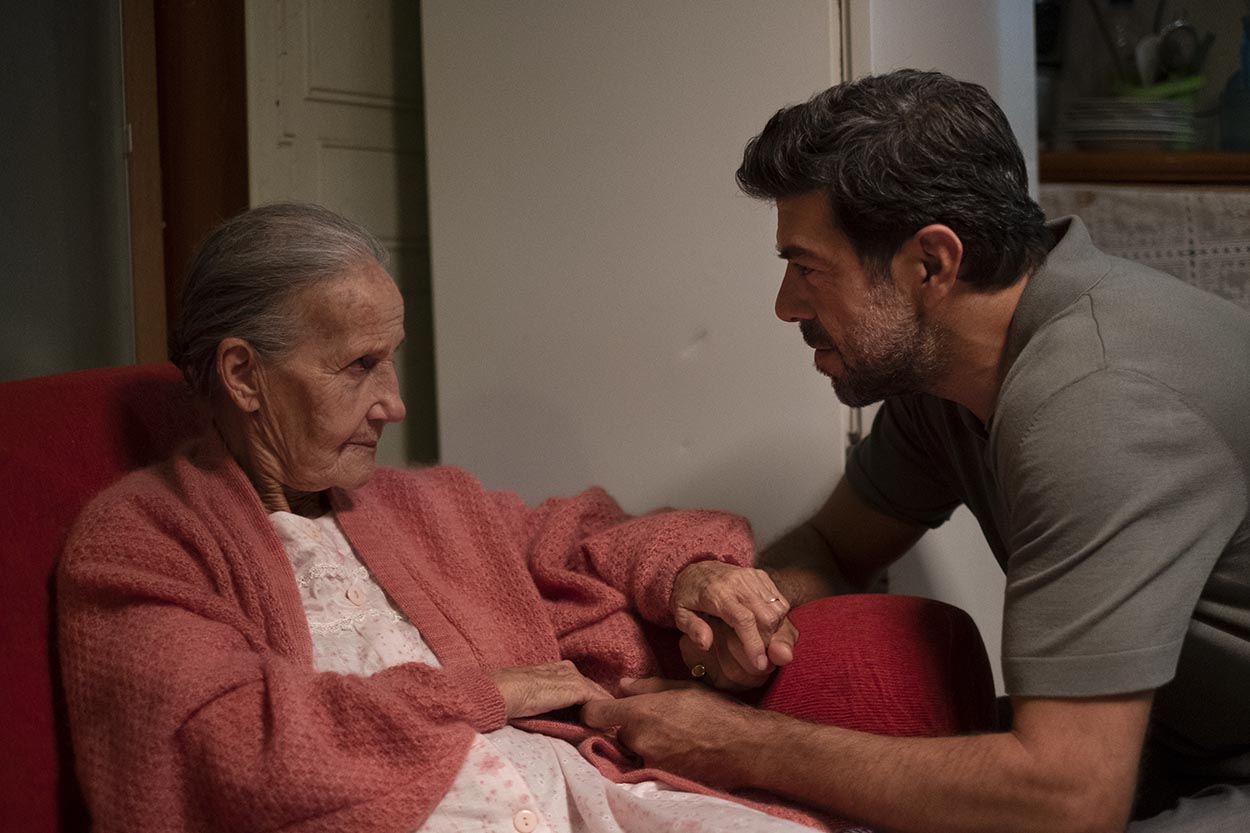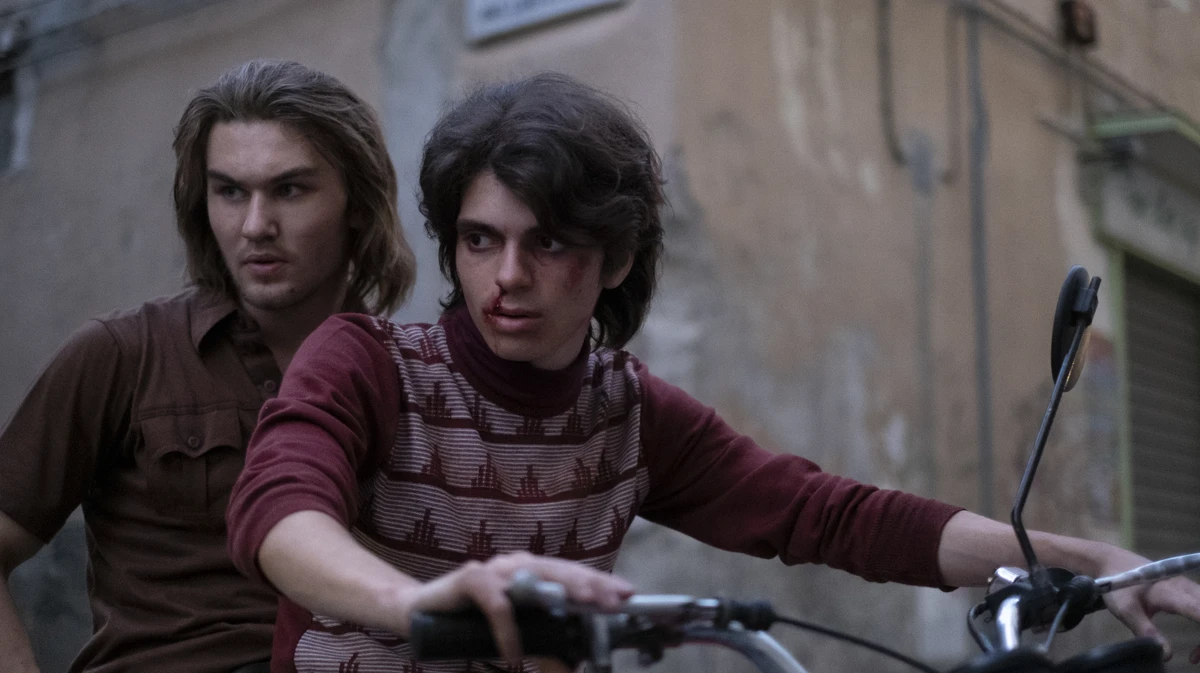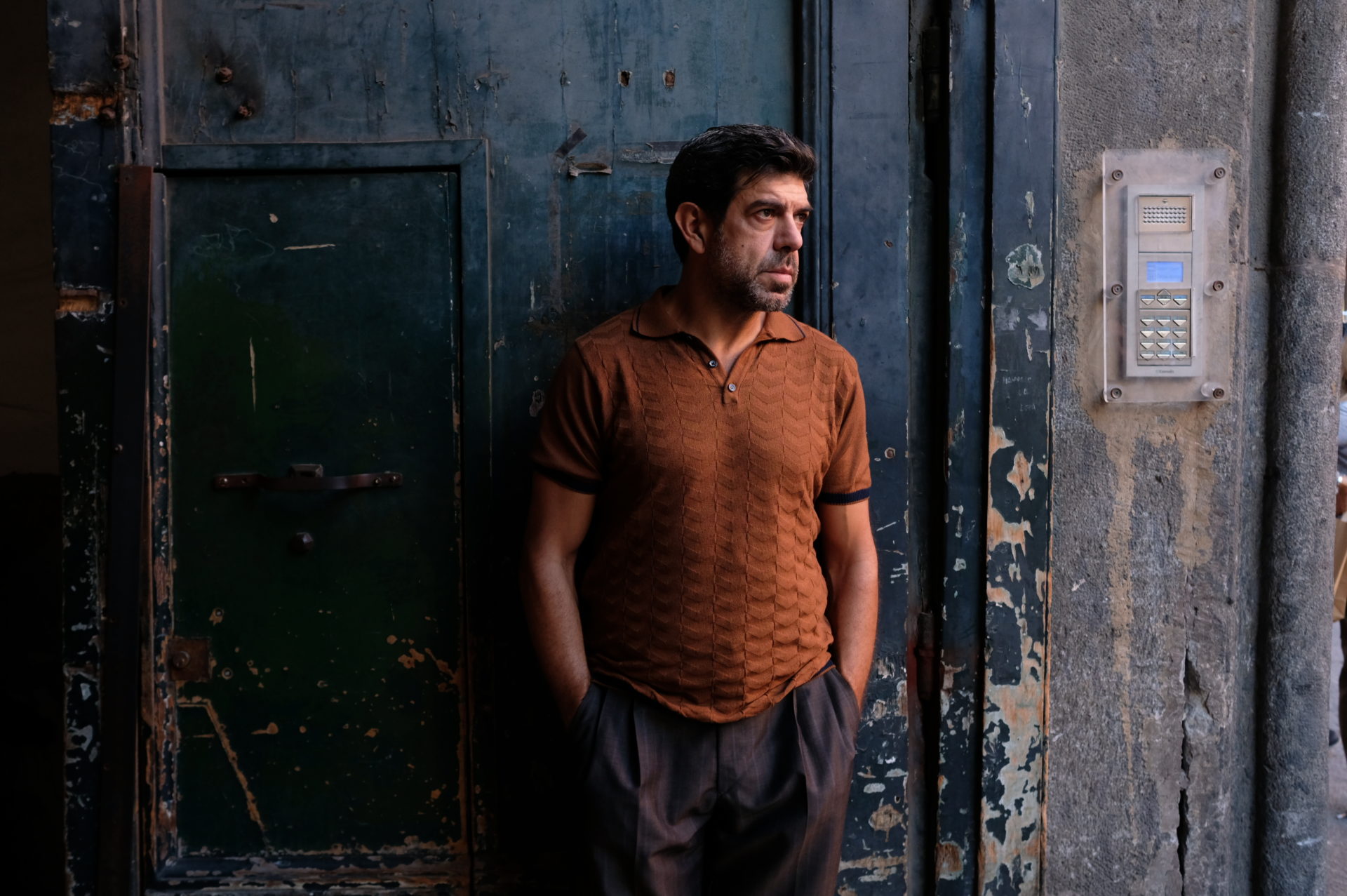★★★★☆
Mario Martone’s Nostalgia takes us on a journey to Naples, the hometown of Felice Lasco, reflecting on the nature of memory, change, and one’s sense of place in the world. T.S. Eliot wrote of homecoming in Four Quartets, “And the end of all our exploring will be to arrive where we started, and know the place for the first time.” But Felice’s return to Italy after 40 years in Cairo is a bittersweet lesson as he confronts the ghosts of his past and the changes that have warped the city since he left.
The film’s lovely, laconic first half is especially effective in capturing the sense of discovery that comes with returning to one’s place of birth. Felice, played by the stoic Pierfrancesco Favino, wanders the streets of his childhood neighbourhood, willing himself to feel more at home. The longer he stays, the less able he finds himself to leave these simultaneously intimate and alien streets.
We’re privy to flashbacks, shown centre-screen as if recorded on a 35mm movie camera, of a teenage Felice tearing through the streets on a motorbike. This editing isn’t at all jarring and is integral to the film’s success in capturing the fleeting nature of memory and the ever-changing landscape of our hometowns.
But Felice’s past life cannot immediately accommodate him. He’s become Arabised and grapples with the friction between his new religion, Islam, and the highly Catholic Naples of his youth. Surly strangers have even claimed his childhood home, turfing out his wizened but decrepit mother Teresa in exchange for a paltry handful of cash, for which she possesses neither the energy nor interest to spend. It is for his mother that Felice has returned, seeking better digs for her as he works through layers of guilt at having been absent.

Felice and his mother, Teresa, performed expertly by Aurora Quattrocchi
The visuals cool as Felice faces the unromantic present of Naples, paved under the same old, blood-washed cobblestones. There’s a wound beneath the surface of Mario Martone’s Nostalgia. This pang reverberates through the city as Felice’s readjustment to Neapolitan life takes a darker turn.
Oreste (Tommaso Ragno), Felice’s boyhood friend and once partner in crime, now rules the district of Rione Sanità as a local mobster, a morbid symbol of the city’s grimy underbelly.
READ MORE: ★★★★☆ EO review | A tragic odyssey of equine proportions
Nicknamed ‘The Badman’, his opposite number is the local priest Don Luigi, passionately portrayed by Francesco Di Leva. Don Luigi’s life mission is to serve God by encouraging youths to trade lives of violence for physical fitness and community bonding. He campaigns tirelessly against Oreste’s murderous gangsterism.
Newcomer Felice and community pillar Don Luigi get introduced, and Felice quickly confesses his real reason for being swept away from Naples aged 15: Oreste. In a subtle plan to flush Oreste out, Don Luigi introduces Felice to his parishioners, inciting the gossip that will get back to The Badman. The abstinent Felice is even encouraged to take a little wine as the priest weaves a tangled master plan to reclaim the city’s streets.

A young Oreste (left) and Felice (right)
For Felice, it’s not what he recognises of his home city that brings him comfort, but the new, younger life surging past the ghosts that kept him away for so long. Felice finds himself increasingly involved with Don Luigi’s communitarian efforts. He spends time among its youngest generation, rebirthing a social life cut short by his earlier emigration. Martone’s gruffly lyrical urban portrait thus suggests that sometimes we need to go back, but it’s best to keep looking forward as we do.
READ MORE: ★★★☆☆ The Good Boss review | Deliciously wicked performance from Javier Bardem
In Martone’s Nostalgia, the city of Naples is not just a backdrop but a character in and of itself. The film’s elegiac approach to the city induces a universal kind of heartache many of us have experienced when reconnecting with our past.

Pierfrancesco Favino as Felice Lasco
Felice’s story reminds us that our hometowns quickly forget us when we leave them. Architecture, infrastructure, and whole communities can change with scant warning or regard for our memories.
Yet even what we remember has to be reintroduced to us. Pavements we once trod must be broken in again like a new pair of shoes. The end of Felice’s exploring in Nostalgia is not about finding a new version of his past, but rather, discovering a new perspective on his relationship with Naples and a new appreciation for the power of memory to shape his sense of belonging.
Nostalgia is in cinemas 17 February.





